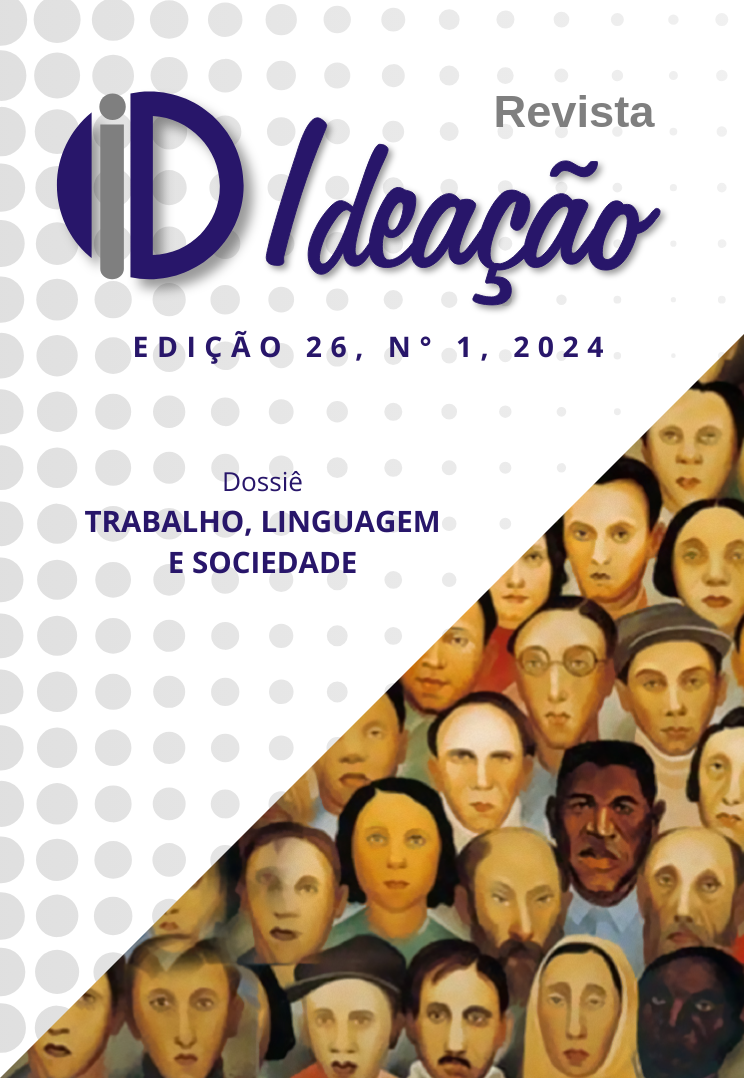Enunciative responsibility and polyphony in essays with maximum marks in the ENEM 2019
DOI:
https://doi.org/10.48075/ri.v26i1.31471Keywords:
ENEM, Enunciative responsibility, Textual Analysis of SpeechesAbstract
In this study, we analyze how the phenomenon of enunciative responsibility occurs in a perfect score essay from the National High School Exam (ENEM), which represents a prototypical production of the exam. Additionally, we investigate the occurrence of polyphony in this genre of textual discourse. The theory that underlies this research is Textual Discourse Analysis, a theoretical framework developed by Adam (2011) in which text and discourse are seen from a new perspective. In addition to this theoretical assumption, the study is also grounded in authors of dialogism, such as Bakhtin (2016), and enunciative authors, like Passeggi et al. (2010), among others. Methodologically, the study has a qualitative approach, a deductive method, and the analysis is carried out through an interpretative method. The corpus collection process was conducted by accessing the perfect score essays available on the G1 portal. The results demonstrate that the first-person speaker/enunciator, the candidate, uses different linguistic modalities to demonstrate engagement with the stated ideas, thereby assuming enunciative responsibility. Furthermore, other voices are employed as argumentative mechanisms to solidify arguments, thus revealing an enunciative procedure known as the use of an argument from authority.
Downloads
Published
How to Cite
Issue
Section
License
Copyright (c) 2023 Direitos partilhados conforme licença CC BY-NC-SA 4.0

This work is licensed under a Creative Commons Attribution-NonCommercial-ShareAlike 4.0 International License.
Authors who publish in this journal agree with the following terms:
1. Authors maintain copyright and grant the journal the right of first publication, with the work simultaneously licensed under the Creative Commons Attribution License that allows the sharing of the work with recognition of authorship and initial publication in this journal.
2. Authors are authorized to assume additional contracts separately, for non-exclusive distribution of the version of the work published in this journal (e.g., to publish in an institutional repository or as a book chapter), with acknowledgment of authorship and initial publication in this journal.
3. Authors are allowed and encouraged to publish and distribute their work online (e.g., in institutional repositories or as a personal page) at any point before or during the editorial process, as this may generate productive changes, as well as increase the impact and citation of the published work (See The Effect of Free Access).
Creative Commons License
This work is licensed under a Creative Commons Attribution-Noncommercial-ShareAlike 4.0 International License, which permits sharing, copying, distributing, displaying, reproducing, the whole or parts provided it has no commercial purpose and the authors and source are cited.


